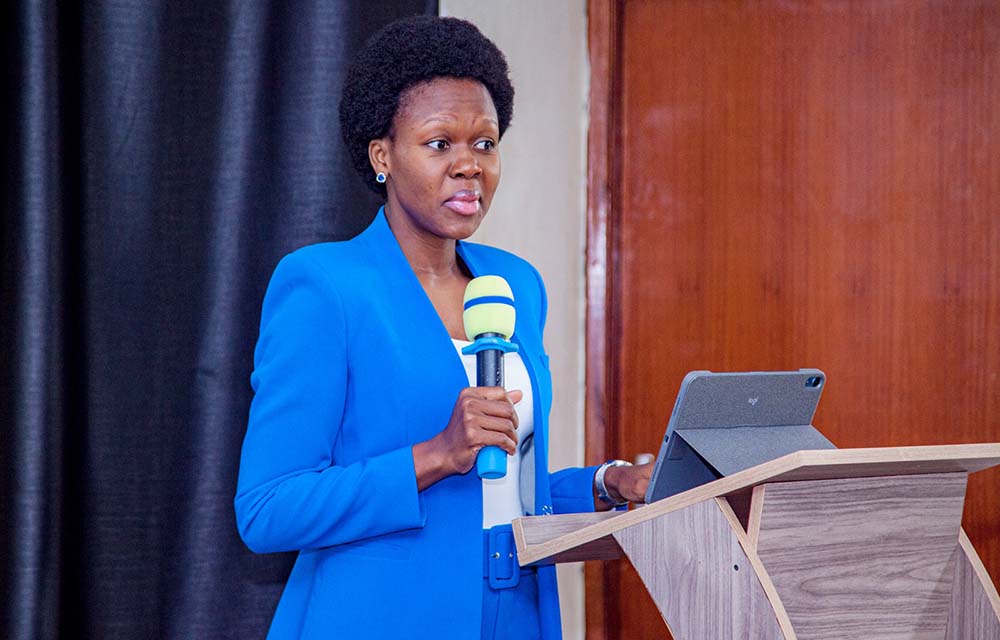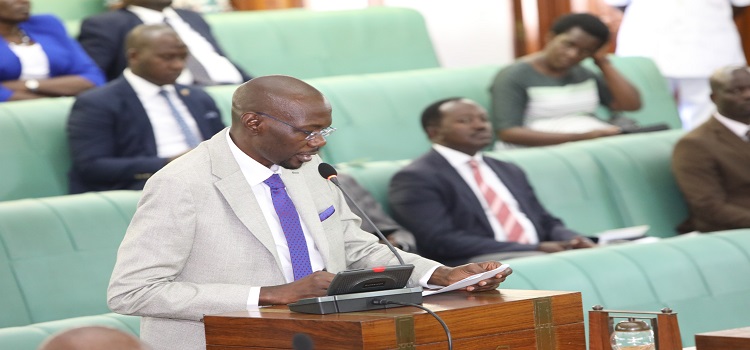Uganda’s Parliament has opened the doors for debate on a rather spicy and controversial piece of legislation, the Sexual Offences Bill, 2024, introduced by Soroti District MP, Anne Ebaju Adeke (FDC). It’s a bill that packs quite a punch—literally, calling for the death penalty for aggravated rape and even prison time for those who decide to get a little too comfortable with public nudity. Now, if you thought Uganda’s legal system was too lenient, this bill will certainly have you rethinking that.
Sitting in the comfort of the Speaker’s chair, Anita Among presided over the matter on October 14, 2024, and sent the bill straight to the Legal and Parliamentary Affairs Committee and the Committee on Gender, Labour, and Social Development for further examination. Among gave the Legal Affairs team 45 days to do a deep dive into this legal concoction and return with a full report. After all, you don’t just slap on death sentences and imprisonment for flashing without some serious homework.
The Sexual Offences Bill is the legal version of pulling out a “Katogo” (a mix of everything). It’s meant to combine all sorts of sexual offence laws, which are currently scattered across Uganda’s legislation, into one big, tidy law. Why? Because right now, if you’re trying to figure out what counts as a sexual offence, you’re flipping through so many different Acts, it feels like you’re searching for a needle in a haystack.
Adeke’s bill doesn’t just stop at rape—it gets into all sorts of naughty behavior that might make one cringe. For instance, if you’re one of those people who think it’s fun to expose yourself in public (you know who you are), you could be looking at up to three years behind bars. And let’s not forget about those who like to administer funny substances with the intent of doing something funny later on—they’ll get slapped with up to seven years in the cooler.
Attorney General Kiryowa Kiwanuka isn’t quite sold on the bill just yet. He raised his eyebrows and pointed out that some of the laws in the bill are already covered in existing legislation. He’s also worried that this legal hammer could cost some serious shillings—money the government hasn’t yet agreed to cough up.
Nevertheless, the bill isn’t slowing down. It’s still on the tracks, moving forward in the hopes of addressing what Adeke calls “evolving trends in sexual violence.” And let’s face it, these trends are out of control. Think of it like a boda boda driver speeding through a Kampala traffic jam—it’s chaotic, and somebody needs to take control.
Adeke insists that while Uganda’s Penal Code Act covers most sexual offences, we also have other laws like the Domestic Violence Act, Children Act, and Prevention of Trafficking in Persons Act that mention sexual crimes. It’s like having your Sunday meal spread across ten different plates—why not put it all on one plate and make it easier to digest?
She also threw in a bit of international flavor, saying countries like Kenya, India, and the UK have already consolidated their sexual offences into one big legal buffet. So why is Uganda still lagging behind like an old matatu struggling up Kabale Hill?
The bill also introduces some modern issues, like punishing people who send explicit content to others without consent or record them in compromising positions. If you’re caught being the 21st-century version of a nosy neighbor with a camera, you could end up in jail for five years. So, all those who like sneaking into WhatsApp DMs with inappropriate content—beware!
But whether the death penalty for rapists or jail time for flashers is the right move remains to be seen. Parliament’s committees have 45 days to sift through this legal maze and present their findings.
Meanwhile, the public will be watching closely. After all, this bill could change the game when it comes to dealing with sexual offences in Uganda. Let’s hope the committees come back with a solution that makes sense—one that addresses the realities of sexual violence without sending the wrong people packing to Luzira for life.




















